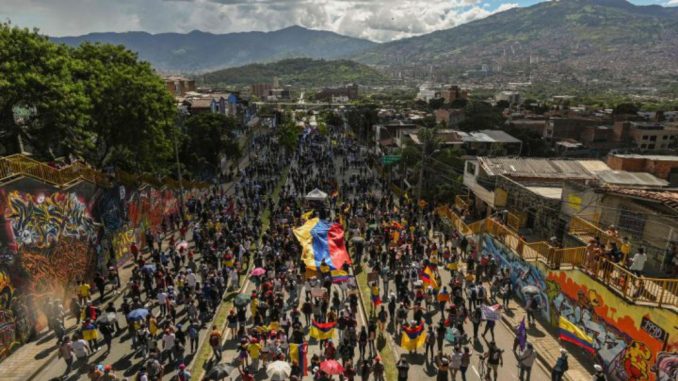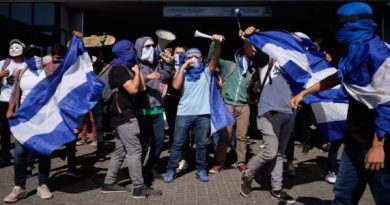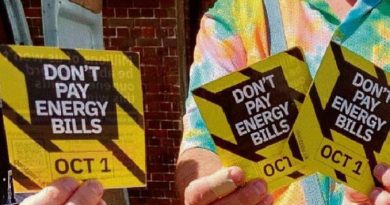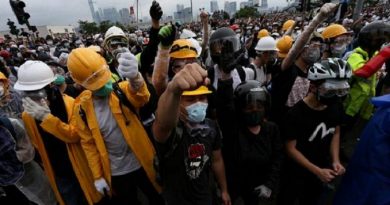Interview with the Group of Socialist Workers (GTS) from Colombia
From Socialist Impulse, Colombian section of the International Socialist League (LIS) we interview partner Juan Sánchez, Director of the Trade Union Association of University Professors (ASPU) and member of the Group of Socialist Workers. With the comrades of the GTS we have been carrying out a coordinated work to intervene in the open process in our country and exploring the possibilities of advancing towards a political regrouping of the revolutionaries.
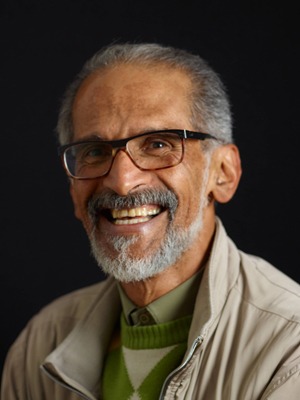
A historical change has occurred, How do you characterize the situation that has opened up in Colombia?
Juan Sanchez: Before answering the question, an observation on the introduction to it. I could subscribe that a historical change has occurred, but, immediately after, It is necessary to specify which is the framework of the same and with respect to what we classify as historical., depth, radicality of the mobilization and protest process that started the 28 last april, with the call to the National Strike, without the slightest doubt there is a qualitative change, historical, regarding the dynamics of struggles of the last five decades. We would have to go back to 1977, to the National Civic Strike of 14 of September, to find a similar fact. But the process that starts the 28 April was very different from the 1977. It happened in a country that is radically different, in which in those five decades there were very deep processes of economic transformations, social and political The process that explodes 28 April 2021 express that new country. The Colombian economy is determined by international economic processes; there are millions of urban dwellers impoverished by the economic crisis that increased to unprecedented levels due to the pandemic; it has the fourth youth unemployment in the world (33.3%, surpassed only by Costa Rica, Spain, and greece). Unlike the country of 1977, we would have to affirm that Colombia was synchronized with the set of political processes, of struggle and mobilization of millions in the world and that, in itself, it's a historic change., if we mean what, until now, has achieved the mass movement, looked at in a "historical" perspective, it would have to be said that this change has not yet occurred; glimpses, there are elements that allow us to envision it, but it has not yet materialized. To exemplify, since 1957 -namely, 65 years — never in Colombia has the struggle of the mass movement succeeded in overthrowing a government; quite frequent affair in the neighborhood (Ecuador, Bolivia, Peru, to name just a few). Not to mention the political regime. The fundamental elements of the reactionary Colombian political regime - a regime that we should not hesitate to classify as a murderer - have been maintained for decades.. The “historical” task of overthrowing this political regime by way of struggle and direct mobilization of millions of exploited and oppressed is still posed. 28 of April, at one point, they placed the Duque government on the ropes; whose fall would have meant a phenomenal crisis (historical) of that regime. Nevertheless, the unity of the bourgeoisie as a whole and the shameful backing of the forces that claim to be democratic (read the opposition of Petro and other so-called alternative parties) led to the fact that not even the task of overthrowing the government has been possible. Petro and those forces, openly and publicly, before the demand that began to gain mass strength from Down with Duke!, pointed out that Duque should stay until the 7 August 2022 Now, your question is how to characterize the situation that has opened up in Colombia. A characterization never accounts for all the elements and dynamics that are at stake in a reality; less in a reality as complex as the Colombian. But the characterizations are important because they provide a framework that allows one to locate oneself. I will not make a disquisition about the various situations defined by classical terminology., Marxist. That's not the point. For what is interesting, it can be said that the movement that has developed since the 28 April - and that beyond its temporary ups and downs will continue to express itself in the future - sharply modified the correlation of forces between the classes in the country, although the classical terminology defines the situation based on the correlation of forces between the directly antagonistic classes (bourgeoisie and proletariat) and the Colombian proletariat (from their grassroots organizations, from the factories, with the stoppage of production) It was not and is not yet a decisive factor in the mobilizations and actions of struggle if it can be affirmed that, by the massiveness, depth and extent of movement has opened a new situation. Huge unorganized working masses participated in the strike and its massive mobilizations in a scattered way, hundreds of thousands of unemployed youth from working families, and was seen with sympathy by the entire population. Has occurred, so, a substantial modification, qualitative, of the correlation of forces. We're, so, faced with a new situation. We can discuss your name, describe her, specify its elements, but there is a new reality at that level. How long does it last? Will it quickly deepen? We do not know; that remains to be seen. Some point to the current situation in Colombia as pre-revolutionary; that is to say, prior to or on the verge of a revolutionary situation. If we define the revolutionary situation as one in which there are real possibilities that the proletariat (leading millions of exploited and oppressed) seize power at the national level and, from a workers' and popular government (or whatever it is called) initiate a program of socialist economic and social transformations, we are still far from that moment. Why? Because for this it is necessary, almost essential, that there is a political party that will raise this program and that it will be the effective leadership of the struggle of millions against the capitalist system (national and global). And that match, day by day, does not exist in Colombia., massive, heroic, involving thousands or millions, by themselves they do not generate that match. These struggles open and expand the possibility of advancing in its construction. But as long as it happens, so, we would debate in the middle of chronic pre-revolutionary situations, with ebbs and flows, advances and retreats.
A month and a half after the outbreak, how do you see the current situation and the tasks that are posed??
JS: To this day, I do not hesitate to affirm that the cycle of massive mobilizations, of radical confrontations with the repressive forces of the regime, of roadblocks and urban roads, with decisive participation of popular youth bands, has temporarily concluded, although sporadic crashes continue to occur. We cannot rule out that another protest will suddenly erupt again, ready o late, nationally or locally. The whole of the economic and social situation has all the necessary elements so that the mobilization can be revived very quickly.. Any government measure, any outrage by the repressive forces can unleash new and radical outbreaks. But let's see a little, Why did the cycle end, without us being able to affirm that the process has been closed? First, and decisive, due to the absence of a leadership that had the capacity and effective interest in giving continuity to the movement and developing a plan to deepen it. I have already indicated the position of the parliamentary opposition parties. These parties dominate politically at the top of the union leadership, of the National Unemployment Committee (CNP). That address, even though it did not represent the whole movement if it decisively influenced. I set the days of mass demonstrations (in general on Wednesdays), Although it was not the plan of that Directorate to unleash a movement of the dimensions that occurred. They just wanted a controlled mobilization the day 28 of April, mobilization that "got out of hand". They quickly entered to beg the government for the installation of a negotiating table. The government initially resisted but later, in an action that combined intense repression (with dozens of dead, hundreds of wounded and missing, sexual assaults on protesters, etc.) With separate negotiations, it began to wear down and weaken the movement. A few days ago the National Unemployment Committee announced that it will not call new demonstrations and that the list of petitions presented to the government will be converted into bills to be taken to Parliament as from the 20 next july. The Colombian Federation of Educators (Fecode), that it was the only trade union organization that during the month of May maintained a declaration of strike, has oriented its bases to return to normal academic activity. Meanwhile he intends to negotiate with the government, separately, your own list of requests.? I would say that the decisive and fundamental thing is to achieve that the energy, combativeness and radicalism demonstrated by thousands of young people, who were the "first line" of the movement, be translated, at this time of temporary decrease in the level of mobilization, in a deep and massive process of political reflection. This process could lay the foundations for the new episodes of struggle and generalized mobilization, that surely will occur, have greater clarity in their objectives, democratic and representative leadership structures of the different sectors in struggle and, to be possible, which would be a huge achievement, a national centralization of a direction that, with representativeness, postulate itself as an alternate leadership to the current bureaucratic leadership and force it to modify its orientations., equally, openly raise the fight for a new political and union leadership for workers. The classist and revolutionary sectors, minority at this time, must consequently face the battle to defeat, from the grassroots, to the bureaucratic leadership that dominates the union apparatus. But that battle can only be fought, with chances of success, breaking with reformist politics, conciliator and capitulator to the regime and the government that dominates within those directions.
How has the process of mass organization been? and What is your opinion of the National People's Assembly?
JS: Overall, the Colombian workers and popular masses do not have solid levels of organization. Among the workers only a small fraction (4.5% approximately) is unionized. In the industrial working class the percentage is minimal. The vast majority of workers are temporarily hired and, for fear that their contracts will not be renewed, It is not linked to unions The mobilization process that developed with the strike of the 21 November 2019 - less strong and less extensive than the current one - showed some embryos of organization in popular sectors; mainly among the youth. From 28 April 2021, in different cities (Cali in a very special way), the so-called Popular Assemblies began to be formed. If that process develops, still incipient, an organizational structure could be achieved that will give greater capacity and strength to future movements. But all of it, i insist, is determined by the majority political orientation that wins the majority there. Without a political perspective any organizational process, valuable and important without a doubt, may even end up slowing down the movement. For an understanding of the process of the National People's Assembly, developed between the days 6 Y 8 of June, I refer to two texts that are published on www.eltrabajadorsocialista.org website of the Socialist Workers Group. First, a common Declaration of three Trotskyist organizations (the GTS, Direct Democracy and Socialist Impulse); the second, an analysis of the results of the Assembly, article written by Armando Barrera., by way of synthesis, it could be pointed out: the National People's Assembly was a valid effort, already in a moment of descent of the movement (more than a month after its start) for grouping forces that questioned the bureaucratic leadership of the National Unemployment Committee and have tried to run as a leadership option. How do you see the possibilities of a strong pole of the revolutionary left?JS: If we understand by "revolutionary left" those who defend an anti-capitalist program, we have to point out that we are, overall, quite weak in Colombia. Achieve a "pole" between them, at least one unified action in some areas, could be a step forward. Reality presses in the direction of uniting the forces of the revolutionaries. That would be a step forward as long as that unity is achieved on solid bases of principles and with correct methods in the internal life of organizations.There is a relatively wide range of organizations, with important influence in some sectors, that they are not fully integrated into the openly reformist parliamentary opposition, that differ in something from her, but they do not advance to raise a program for the seizure of power by the workers, against capitalism, for socialism. They are organizations that only go so far as to propose the fight against the neoliberal model; for a model of "human capitalism" like the one defended by Gustavo Petro, main representative of the reformist parliamentary opposition.With these organizations what is proposed is to act in common by promoting the struggle and mobilization of the workers, achieving that in the mass organizations the decisions are adopted in a democratic way. The reality and the process of struggle can lead individuals (or sectors) of these organizations to understand that the struggle to reform capitalism is in vain. Just a set of radical anti-capitalist measures, enforced by a workers' government, can begin to solve the problems and needs that day after day overwhelm millions and millions of exploited and oppressed, in the country and the world.
Do you want to add something else?
JS: I would like to highlight the decisive importance that international solidarity had and has in order to somewhat contain the brutal repressive onslaught of the regime and the government of Iván Duque against the Colombian people.. Those demonstrations before Embassies and consulates, statements by human rights defenders, the demand that the repression cease, they are not only a moral endorsement: they are an objective political force in the battle to contain the hand of a murderous regime and government. I call for this solidarity attitude to be maintained in all countries, Well the fight continues.

